- Home
- Quizzes
- My Quiz Activity
- Newsletters
- Sports Betting
- MY FAVORITES
- Add Sports/Teams
- SPORTS
-
NFL
- NFL Home
- Arizona Cardinals
- Atlanta Falcons
- Baltimore Ravens
- Buffalo Bills
- Carolina Panthers
- Chicago Bears
- Cincinnati Bengals
- Cleveland Browns
- Dallas Cowboys
- Denver Broncos
- Detroit Lions
- Green Bay Packers
- Houston Texans
- Indianapolis Colts
- Jacksonville Jaguars
- Kansas City Chiefs
- Las Vegas Raiders
- Los Angeles Chargers
- Los Angeles Rams
- Miami Dolphins
- Minnesota Vikings
- New England Patriots
- New Orleans Saints
- New York Jets
- New York Giants
- Philadelphia Eagles
- Pittsburgh Steelers
- San Francisco 49ers
- Seattle Seahawks
- Tampa Bay Buccaneers
- Tennessee Titans
- Washington Commanders
-
MLB
- MLB Home
- Arizona Diamondbacks
- Atlanta Braves
- Baltimore Orioles
- Boston Red Sox
- Chicago White Sox
- Chicago Cubs
- Cincinnati Reds
- Cleveland Guardians
- Colorado Rockies
- Detroit Tigers
- Houston Astros
- Kansas City Royals
- Los Angeles Angels
- Los Angeles Dodgers
- Miami Marlins
- Milwaukee Brewers
- Minnesota Twins
- New York Yankees
- New York Mets
- Oakland Athletics
- Philadelphia Phillies
- Pittsburgh Pirates
- San Diego Padres
- San Francisco Giants
- Seattle Mariners
- St. Louis Cardinals
- Tampa Bay Rays
- Texas Rangers
- Toronto Blue Jays
- Washington Nationals
-
NBA
- NBA Home
- Atlanta Hawks
- Boston Celtics
- Brooklyn Nets
- Charlotte Hornets
- Chicago Bulls
- Cleveland Cavaliers
- Dallas Mavericks
- Denver Nuggets
- Detroit Pistons
- Golden State Warriors
- Houston Rockets
- Indiana Pacers
- Los Angeles Clippers
- Los Angeles Lakers
- Memphis Grizzlies
- Miami Heat
- Milwaukee Bucks
- Minnesota Timberwolves
- New Orleans Pelicans
- New York Knicks
- Oklahoma City Thunder
- Orlando Magic
- Philadelphia 76ers
- Phoenix Suns
- Portland Trail Blazers
- Sacramento Kings
- San Antonio Spurs
- Toronto Raptors
- Utah Jazz
- Washington Wizards
-
NHL
- NHL Home
- Anaheim Ducks
- Arizona Coyotes
- Boston Bruins
- Buffalo Sabres
- Calgary Flames
- Carolina Hurricanes
- Chicago Blackhawks
- Colorado Avalanche
- Columbus Blue Jackets
- Dallas Stars
- Detroit Red Wings
- Edmonton Oilers
- Florida Panthers
- Los Angeles Kings
- Minnesota Wild
- Montreal Canadiens
- Nashville Predators
- New Jersey Devils
- New York Islanders
- New York Rangers
- Ottawa Senators
- Philadelphia Flyers
- Pittsburgh Penguins
- San Jose Sharks
- Seattle Kraken
- St. Louis Blues
- Tampa Bay Lightning
- Toronto Maple Leafs
- Vancouver Canucks
- Vegas Golden Knights
- Washington Capitals
- Winnipeg Jets
- NCAAF
- NCAAM
- Boxing
- Entertainment
- Lifestyle
- Golf
- MMA
- Soccer
- Tennis
- Wrestling
- More Sports
- RESOURCES
- My Account
- YB on Facebook
- YB on Twitter
- YB on Flipboard
- Contact Us
- Privacy Policy
- Terms of Service

The 50 greatest Rolling Stones songs
The Beatles might've been the first band to make landfall in the 1960s British Invasion, but their prominence was immediately challenged by dozens of groups from across the pond eager to do it bigger and better than the Fab Four. The Rolling Stones weren't bigger than The Beatles in their prime, but they were certainly badder. They were the punk kids who slipped through the upstairs window at night with a bottle of booze and a pack of cigarettes. They were incorrigible. And unlike The Beatles, the Stones managed their internal disputes and kept churning out new music into the 2000s. So if you're looking to single out their fifty greatest songs, you have a lot to choose from. Most of the songs on this list come from the 1960s and '70s, but they recorded plenty of essential music throughout the 1980s (and the occasional knockout in the 1990s). This is a daunting task, but like a classic Stones track, it builds to a righteous conclusion.
50. "Happy" (1972)

That tinny guitar lick provides a slightly off-key prelude to the unique pleasure of listening to Keith Richards sing. The long-running joke about Keith’s whiskey-and-cigarettes-scorched voice is that he can sing melody and harmony at the same time. If you’ve ever been to a Stones show before, you know that nothing gets the crowd going like Keith stepping up to the microphone to blast out “Happy”.
49. "Get Off of My Cloud" (1965)
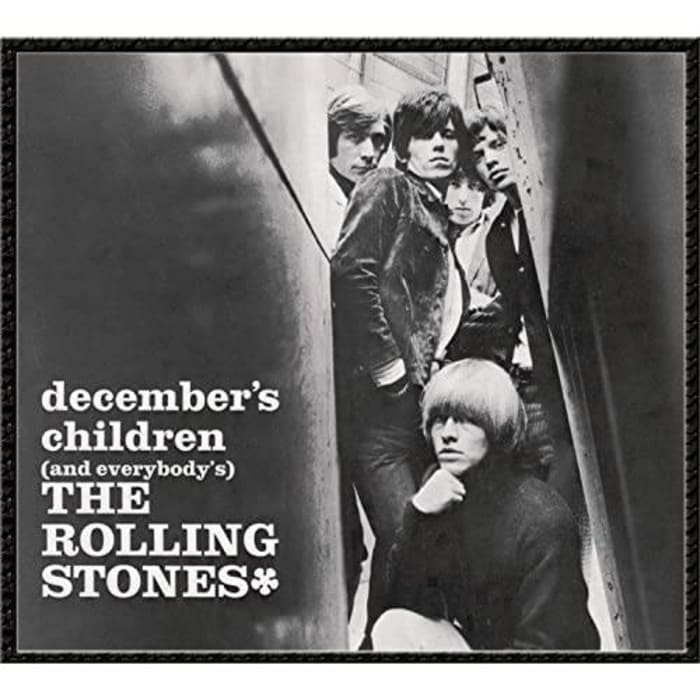
The Stones quickly learned that the music industry waits for no one when their label started hounding them for a follow-up to “(I Can’t Get No) Satisfaction”. This was their response, a petulantly surreal (“I live in an apartment on the ninety-ninth floor of my block”) companion piece to the advertising-averse hit that made them international recording sensations. It did the trick (the song hit number one on the Billboard charts), but it really does sound like a talented band buying time.
48. "The Last Time" (1965)
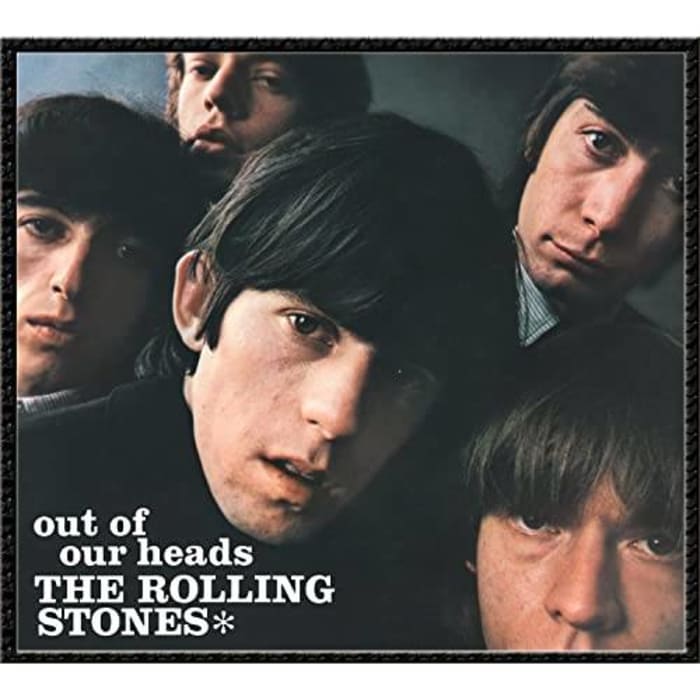
This is a lightweight single with a helluva hook – a hook so irresistible it turned The Verve’s “Bitter Sweet Symphony” into a hit thirty years later. The original lineup of the Stones bangs this out proficiently. It’s a song about a cad threatening a reliable hookup with abstention. It’s a bad boy’s dream, and it rarely plays out the way the narrator of this song thinks it will.
47. "2,000 Light Years from Home" (1967)

The Stones flirted with psychedelia like the rest of their ‘60s peers, but it just wasn’t their bag. While The Beatles were hitting new heights (and highs) with “Revolver” and “Sgt. Pepper’s Lonely Hearts Club Band”, Mick and the gang undertook “Their Satanic Majesties Request”, which didn’t have anywhere near the same impact. It’s an artistic failure, but there are a few great songs on it, including this wildly expansive track that lets Brian Jones show off his musical versatility. The Stones played this both times I saw them live, and it feels like a tribute to Jones. This was right at the moment he began to drift away from the band and into addiction; he was a key component to their sound, and then he was gone.
46. "Play with Fire" (1965)

Every “good girl” on the planet fell hard for that delectably nasty Mick Jagger via this seductive track in which a bad, bad boy warns/dares a young woman of means to keep her distance. One reading of the lyrics suggests that Jagger’s “character” has carnal knowledge of the young woman’s “heiress” mother. This is what The Beatles couldn’t do.
45. "I Am Waiting" (1966)
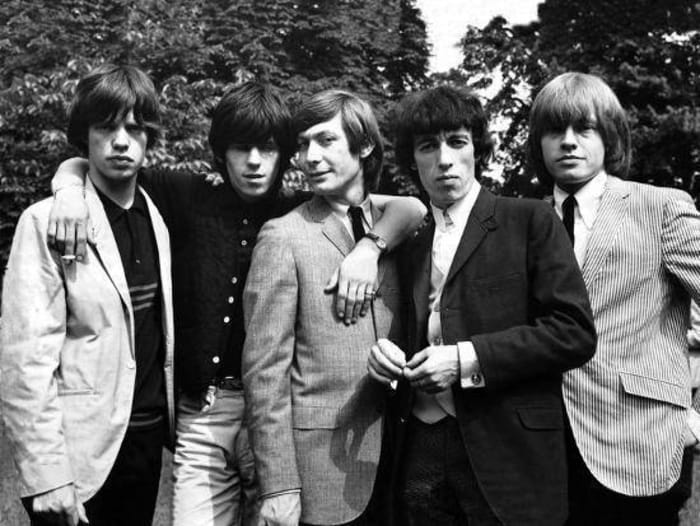
This fairly vague and innocuous song about yearning turns into something special when the bridge hits. “See it come along/Don’t know where it’s from/Oh, yes, you will find out.” The narrator is explaining a moment of discovery that has yet to occur, something that we learn, via the second dive into the bridge, “will pierce our bones” with fear. Perhaps it’s a cautionary song about spending your whole life waiting rather than seeking. It’s hard to say, which lends it an unexpected layer of melancholy.
44. "It's All Over Now" (1964)
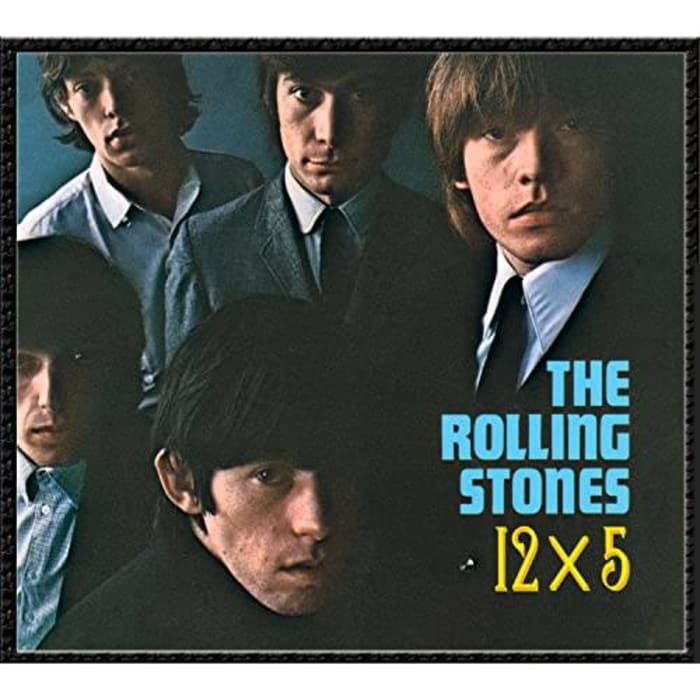
The Stones scored their first number one hit in the UK with this cover of The Valentinos’ (aka the Womack brothers’) jump blues throwback that, shockingly, failed to get a great deal of radio play on white pop stations. Though The Valentinos’ take has a little more bounce to the ounce, the young Stones tear through the song with wild, blue-eyed abandon.
43. "Rocks Off" (1972)

“Is the whole album going to sound like this?” That was the question on every Stones fan’s mind when “Rocks Off” opened “Exile on Main St.” in all its muddy, unpolished glory. This is a straightforward, rough-and-ragged rocker bolstered by horns that seem to come out of nowhere. The Stones didn’t get many singles out of this masterpiece, and it’s oddly understandable. The highest praise you can offer “Rocks Off” is that you can’t listen to this track and not want to hear the rest of “Exile”.
42. "Hang Fire" (1981)
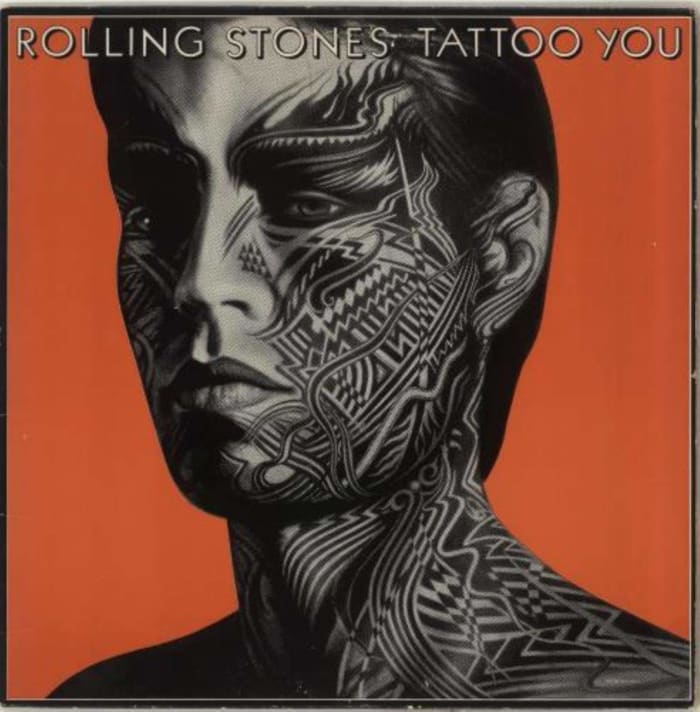
“You know marrying money is a full-time job/I don’t need the aggravation/I’m a lazy slob.” Absent this lyric, you might think the Stones were tearing into the welfare class in England and the U.S. It’s a deeply sarcastic song about class disparity that plays with renewed vigor today. Instrumentally, it’s a somewhat curious track due to Ronnie Wood replacing Bill Wyman on bass (those with a trained Stones ear can tell the difference), but otherwise it fits in well with the unfussy “Tattoo You” aesthetic.
41. "She's a Rainbow" (1967)
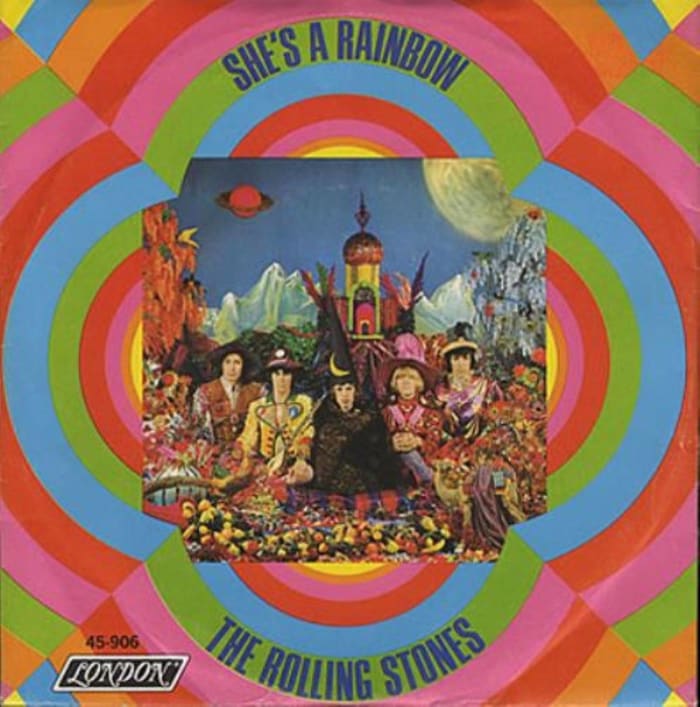
The other great song from the Stones’ middling foray into psychedelia, “She’s a Rainbow” benefits greatly from a lovely string arrangement by Led Zeppelin bassist John Paul Jones. There’s also no beating that piano intro from Nicky Hopkins, nor, for that matter, Brian Jones’s mellotron playing throughout the track. The lyrics are flowery nonsense, but at least the band sounds semi-sincere in their sentiment.
40. "Angie" (1973)

Another classic off the alleged disaster that is “Goats Head Soup”. This is mostly a Keith composition, but Mick sings it like it’s his. Is he still mourning his breakup with Marianne Faithfull, or another lost paramour (he was two years into his marriage with Bianca, so maybe that’s the source of his pain)? It’s pretty standard balladry, but there are some uncommon flourishes (particularly that ghost vocal track) that set it apart.
39. "Love in Vain" (1969)
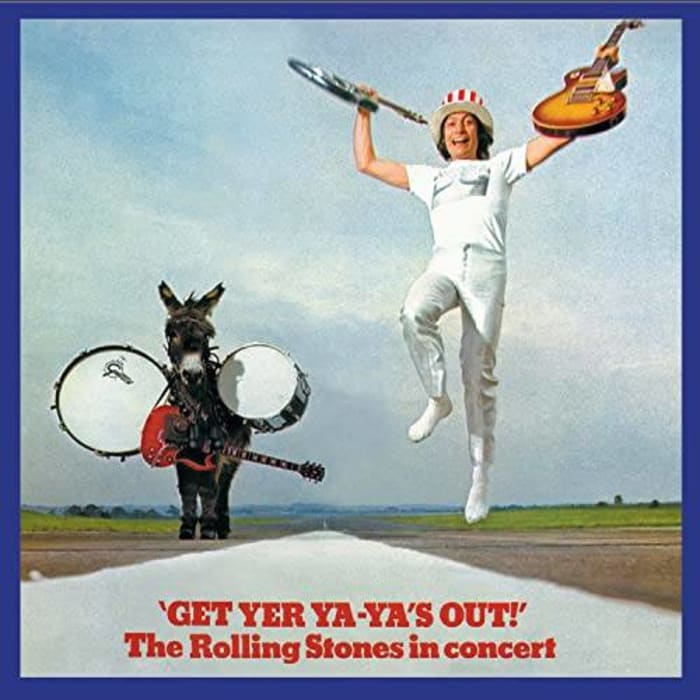
The Stones were avid fans of 1930s blues guitarist Robert Johnson, who’s now renowned as the most influential Delta blues musician of his era. In the late 1960s, however, his work was less well known, so the Stones recorded a couple of his songs – “Love in Vain” and “Stop Breaking Down” – figuring they were in the public domain. They weren’t (and they eventually paid out to his estate), but, to their credit, they made “Love in Vain” their own with an adventurous arrangement that includes Keith on slide guitar and Ry Cooder working wonders with the mandolin.
38. "Shattered" (1978)
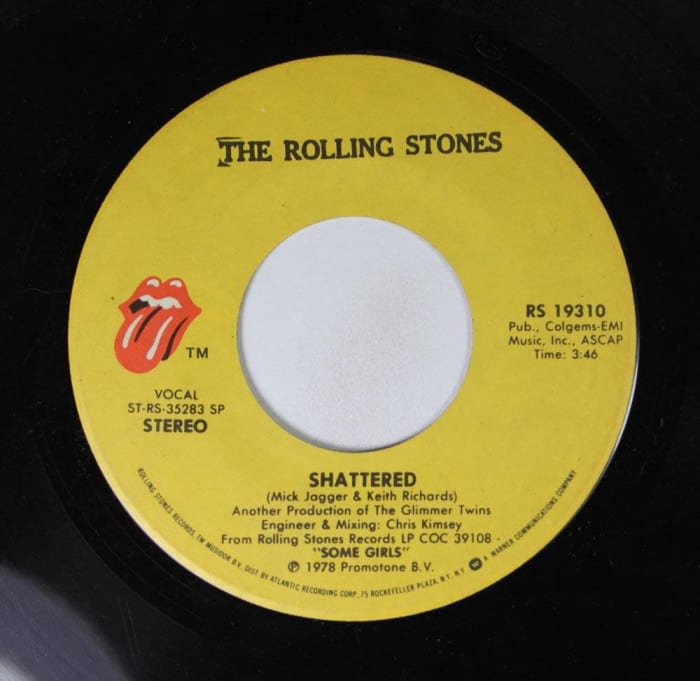
Another gem off “Some Girls”. Jagger’s lyrics are a stinging evocation of on-the-skids New York City in the late ‘70s (“My brain’s been battered/Splattered all over Manhattan”), and it’s all conveyed with blasé insouciance. Aside from Simon Kirke on congas, this is the just the five Stones in a deep, loosey-goosey groove.
37. "It's Only Rock 'n Roll (But I Like It)" (1974)

This sounds like an outtake from the “Let It Bleed” or “Sticky Fingers”, which could be due to the session band (Ronnie Wood on the twelve-string, Willie Weeks on bass, Kenney Jones on drums and David Bowie providing background vocals) letting it all hang out on a one-time gig. A little outside inspiration never hurt. It’s a shallow song all told, but it’s become a signature song for the band.
36. "Waiting on a Friend" (1981)

In which Mick Jagger confesses he’s tired of chasing tail and boozing it up with the boys. It’s a strangely tender song for the Stones. “Making love and breaking hearts/It is a game for youth.” Jagger was shacking up with Jerry Hall at the time, and the record shows that he was not faithful to her thereafter, but it’s a touching moment of clarity nonetheless. Sonny Rollins’s tenor saxophone solo soulfully accentuates the hang-out groove.
35. "Under My Thumb" (1966)

“It’s down to me/The way she talks when she’s spoken to/Down to me, the change has come/She’s under my thumb.” The Stones’ lyrics can get pretty problematic at times, but the narrator of this song seems comically cocksure about his control over this woman. He sounds like your buddy whose wife finally let him out for a night with the guys, brags about how he can do whatever he wants, then gets called home to put the kids down an hour later. The song’s hip, marimba-driven arrangement further undercuts its tough talk. This is also the last song Meredith Hunter heard in his too-short life.
34. "She Was Hot" (1984)

“Undercover” is a baffling, overproduced album, but to the Stones’ credit they weren’t emulating anyone near as anybody could tell. The title track is nutty, but this straightforward rocker redeems the entire endeavor. Longtime associate Ian Stewart makes a welcome return to the keys, and the band lets it all hang out in classic Stones fashion. MTV gave it heavy spin in ’84, but the song failed to connect with the masses. They brought it back for their 2006 tour, but Mick’s upper register was shot by this point; the studio recording is aces, though, and deserves a bigger following.
33. "Star Star" (1973)

Only The Rolling Stones would release a virtually unplayable single with a B-side that should’ve been the A-side. This is the closing song on the uneven “Goats Head Soup”, and it’s an old-fashioned Stones rocker that only works in uncensored form (“You’re a starfu**er”). Jagger’s not playing coy on this track. “Honey, I missed your two-tongue kisses/Legs wrapped around me tight/If I ever get back to Fun City, girl/I’m gonna make you scream all night.” It goes without saying that Jagger isn’t planning to take this girl to a haunted hayride.
32. "Mother's Little Helper" (1966)
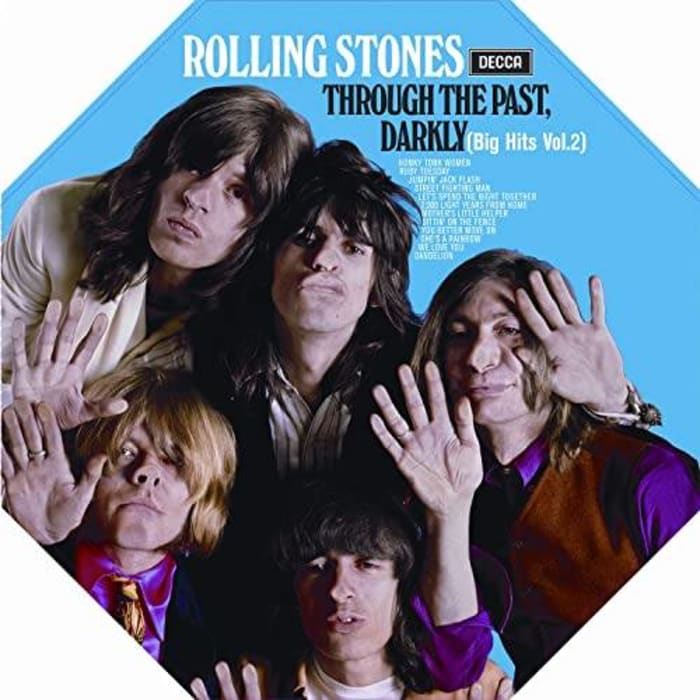
Possibly the first rock song to tackle valium addiction, “Mother’s Little Helper” can be interpreted as sympathetic to the housewife’s plight or sarcastically pointing up the prevalence of substance abuse in the very households that, at the time, were excoriating the corruptive influence of the Stones’ music. “And though she’s not really ill…” has always been the tell for me, but, over fifty years later, we understand that anxiety is an affliction that does not discriminate. Odds are that at least one of Jagger’s kids is on antidepressants.
31. "Start Me Up" (1981)

You may not be able to hear “Start Me Up” anymore without thinking of Steve Ballmer gesticulating and Bill Gates clapping nowhere near the rhythm at the Windows ’95 launch. But did you know it was almost recorded as a reggae song? Or that, despite being one of the Stones’ most iconic hits, it never topped the Billboard Hot 100 because Christopher Cross’s “Arthur’s Theme” and Hall & Oates’ “Private Eyes” traded off at number one? Radio DJs loved to play this track into the fade so listeners heard at least one refrain of “You make a dead man come.”
30. "As Tears Go By" (1965)

“I want a song with brick walls around it, high windows and no sex.” This was Stones’ manager Andrew Loog Oldham’s exhortation to Mick and Keith in 1964, and the result was this bittersweet ditty that became a hit in the UK for Marianne Faithfull. The Stones recorded it a year later and performed it during a set for “The Ed Sullivan Show”. Their stripped down recording – it’s just Mick, Keith on a twelve-string and a baroque string arrangement by Mike Leander – is the kind of track kids in the ‘60s would play for their parents to prove rock-and-roll wasn’t noise.
29. "Miss You" (1978)

Everyone in the late 1970s messed around with disco, but The Rolling Stones not only did it on their own terms, they spearheaded a comeback behind it (it’s side one, track on on “Some Girls”, their first great LP since “Exile on Main St.”). Bill Wyman conjures a James Jamerson vibe on the bass, which – along with Ian McLagen’s Wurlitzer piano, Mel Collins slippery tenor saxophone and Sugar Blue’s wailing harmonica – turns this into one of the bluesier funk tracks you’ll ever hear. It’s a really weird hybrid, one of the strangest musical magic tricks the Stones ever pulled.
28. "19th Nervous Breakdown" (1966)
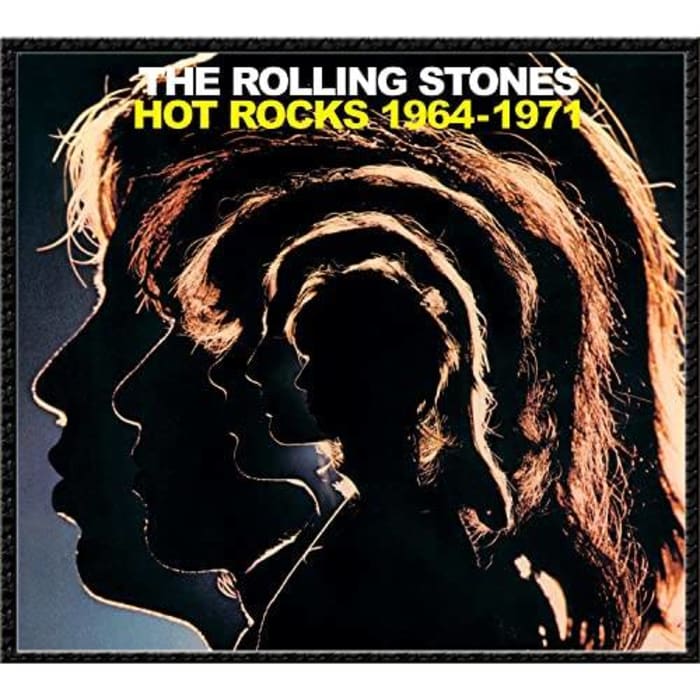
The boys at their bratty best. It’s just another iconic opening guitar riff (this one from Jonesy), and a rambunctious groove that picks up steam behind that great harmony on “Here it comes…” There were so many great artists testing the boundaries of a new musical genre in the mid-1960s, and this is one of those perfect songs that materializes while you’re noodling around with your chums in the garage.
27. "Dead Flowers" (1971)
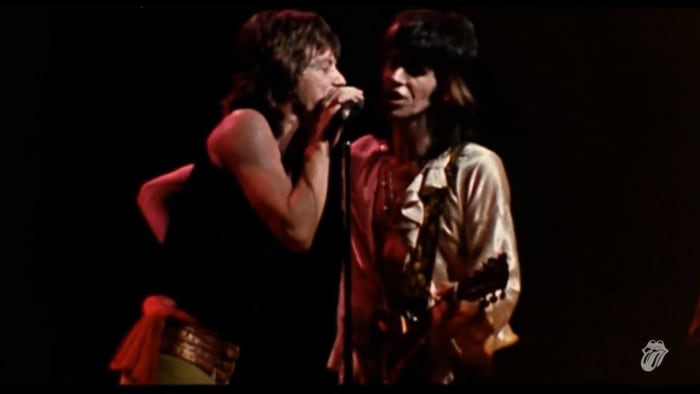
“Send me dead flowers by the U.S. Mail.” Not a problem nowadays! This countrified rocker, with its casual allusions to heroin use, makes giving up sound like a party. There’s a heavy Gram Parsons influence here, and the weight of Altamont is present. Again, the Stones weren’t big on sentiment; they spit in the face of the reaper and keep on rollin’.
26. "Sweet Virginia" (1972)
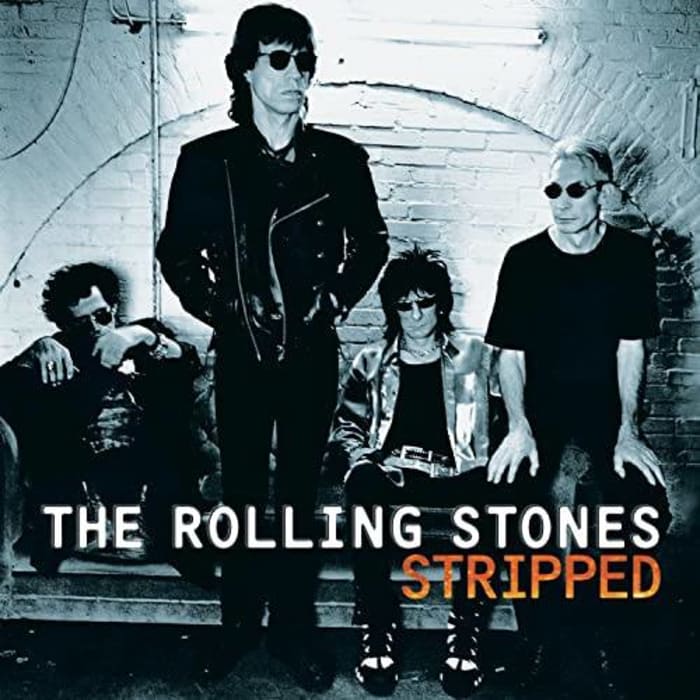
Another classic Stones track with two distinctly different versions. The original “Exile on Main Street” track is sprinkled with… whatever dust made that historic session go. It’s ragged, boozy blues-rock with what might be Jagger’s most soulful harmonica riff. Bill Wyman’s ambling bass line gives the song its half-crocked charm. The “Stripped” recording from 1995 (with a much tidier Darryl Jones on bass) is a cleaned-up country track; it’s a great performance, but it lacks the addled magic of the “Exile” take (which closes out Rian Johnson’s superb “Knives Out”).
25. "Wild Horses" (1971)

This is one of those Stones songs where you wonder if the uber-talented artist they were jamming with at the time doesn’t deserve a songwriting credit – because you can absolutely hear Gram Parsons on this song even if he didn’t play on the studio recording. The lyrics are some of Jagger’s best (“Childhood living/Is Easy to do/The things you wanted/I bought them for you”), and, true to Stones form, flirt with sentimentality without dipping into full-on McCartney gush. It’s a tough song about regret. “Let’s do some living/After we die.”
24. "Ruby Tuesday" (1967)

The song that launched a restaurant chain! This was the B-side to “Let’s Spend the Night Together”, and there’s quite the dispute as to who really wrote it. It seems to be a very personal song for Keith (who was writing about his girlfriend at the time), but Marianne Faithfull claims it was a collaboration between her and Brian Jones. As is the case with most Stones songs of that era, Jones was the special sauce (in this case, he played the recorder).
23. "Loving Cup" (1972)
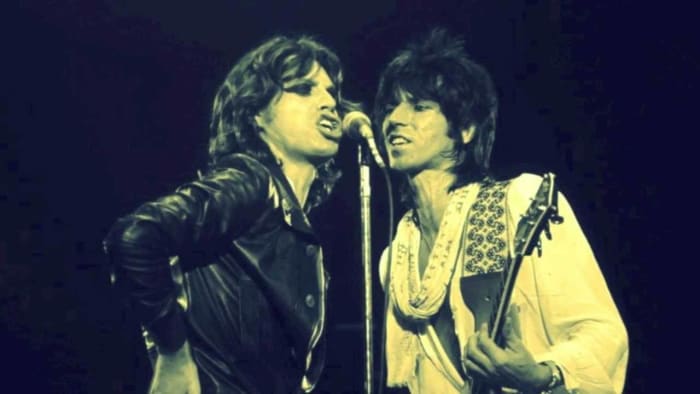
“What a beautiful buzz.” The perfect song to throw on at 3 AM, when the party’s threatening to wind down and you want to keep it going ‘til the break of dawn. The track keeps building in intensity until the horns kick in and the revelries are renewed. The party must go on. This is the Stones at their bluesy, boozy best.
22. "Out of Time" (1966/1975)
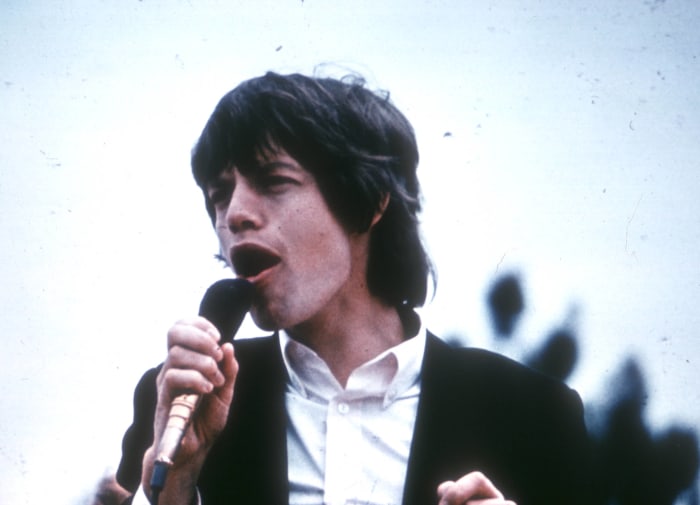
Do you prefer your “Out of Time” with or without string accompaniment? Purists will stick with the band’s 1966 “Aftermath” recording, which allows Brian Jones’s marimbas and Ian Stewart’s Hammond organ to pop, but the orchestral version nudges the tone from bittersweet to almost tragic. Hal Ashby used the “Aftermath” track for the opening of “Coming Home”, while Quentin Tarantino scored Los Angeles coming to neon life in the third act of “Once Upon a Time in Hollywood”. Having studied both cues recently, I’m going to be lenient and say there’s not a wrong choice.
21. "Beast of Burden" (1978)
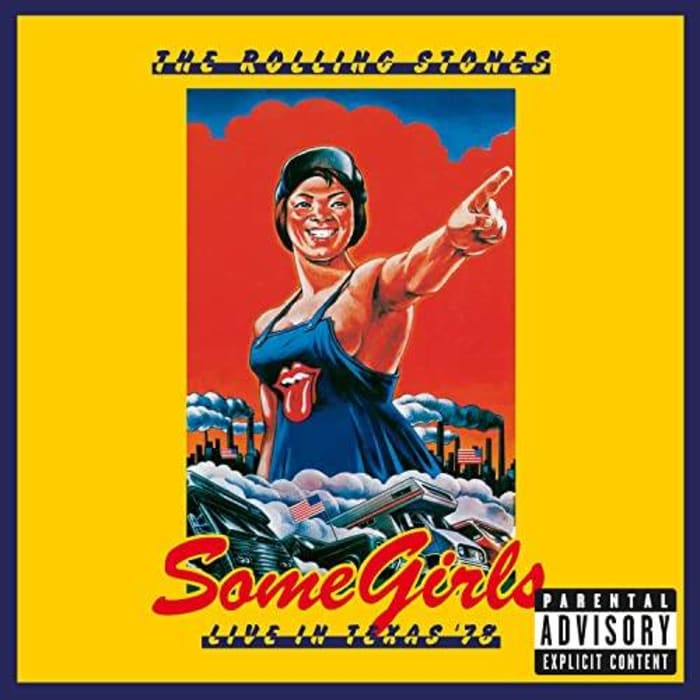
An in-the-pocket jam from that magical “Some Girls” session, “Beast of Burden” is the epitome of the Stones ‘70s sound. You can’t fault the band for stretching on the mixed-bag LPs in between “Exile” and this, but it sure is nice to have the boys (Jagger, Richards, Wood, Wyman and Watts) doing what they do better than any band in rock-and-roll history. The lick-trading chemistry between Keith and Wood is effervescent, but never overwhelms the laidback vibe.
20. "Sister Morphine" (1971)

The Stones at their peak with songwriting help from Marianne Faithfull (who recorded the tune first), slide guitar from Ry Cooder and ivory thumpin’ from Jack Nitzsche. This is the kind of experimentation that would lead the band astray throughout much of the next decade, but it’s pretty hard to miss with this A-plus personnel. That said, gun to the head, we’re taking Faithfull’s haunting version (also featuring Cooder and Nitzsche) over the Stones’.
19. "Street Fighting Man" (1968)

Who kicks off a rock song about “street fighting” with an acoustic guitar, then segues into a chorus with sitar? There’s not an electric guitar in sight (Nicky Hopkins’ piano kicks in where the rhythm axe typically adds muscle), and this is still about as rousing a call-to-arms as you’ll ever hear – even though the lyrics advocate starting a rock band rather than inciting a “palace revolution”. Jagger’s sarcasm is cutting as ever.
18. "Midnight Rambler" (1968)

We always talk about great side one/track ones, but what about the best side two/track ones. This latter discussion died with the advent of the compact disc, but when we were all spinning vinyl, this was an important sequencing conversation – and it was hard to top flipping over “Let It Bleed” to find “Midnight Rambler” waiting for you on the other side. When those cymbals crash and Jagger slides in with vocals and harmonica… it’s heavenly. The tempo shift three minutes in takes this track to a completely different, funkier level. A minute later, it turns downright sinister. This one’s a journey.
17. "Honky Tonk Women" (1969)

So much cowbell. This is The Rolling Stones at their hybrid best. You can play this as a country song, a rock song or a rhythm-and-blues song. It’s going to work over an audience regardless of genre. And a quick gender switch turns this into a feminist or a gay anthem. It’s a song about you-know-what, and it’s also, for people who aren’t hugely gifted in the singing department, a fairly easy song to nail at karaoke. This was released as a single in between “Let It Bleed” and “Sticky Fingers”. A lot went down in between those records. This track might’ve saved the band.
16. "Tumbling Dice" (1972)

The fifth song on “Exile on Main St.” takes down the temperature after “Rocks Off”, and lets the band sink into a drunken groove that lasts for the rest of the LP. The special sauce here is Clydie King, Venetta Fields and Sherile Matthews; the Stones could strike a honky-tonk vibe here and there, but this is essentially the mission statement for the album. Pour yourself a few fingers, and kick back for four sides of booze-soaked blues rock.
15. "Monkey Man" (1968)

A slow-burn companion piece to “Gimme Shelter” that doesn’t get nearly the credit it deserves because… it’s sequenced right next “You Can’t Always Get What You Want”? First off, it’s a better song. It’s one of Keith’s best guitar riffs, and – between Wyman’s vibraphones, Hopkins’s and Jimmy Miller’s tambourine – a feast of instrumentation that never feels egregious. This song was meant to be.
14. "Fool to Cry" (1976)

A last-call ballad for the ages, this single off the underrated “Black and Blue” finds a troubled Jagger looking for comfort from lovers and friends, all of whom tell him he’s a “fool to cry”. By the end of the song, he owns up to being a “certified fool”. Jagger spills out his pain on the electric piano, and Keith’s guitar wails along with him. Nicky Hopkins synth-and-piano work here is perfection. This is as good as white-boy blues rock gets.
13. "You Can't Always Get What You Want" (1968)
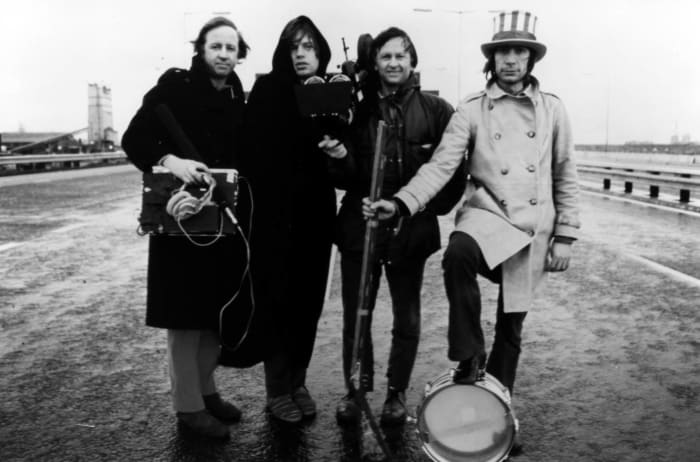
The Stones closed out “Let It Bleed” with this gloriously overblown track that, fifteen years later, became the Baby Boomer anthem for settling via its irritating use in “The Big Chill”. The London Bach Choir brings the bombast, but unlike Phil Spector’s symphonic work on The Beatles’ “Let It Be”, the Stones actually wanted this ornamentation. Jagger wasn’t shy about his inspiration; he cited the end of “Hey Jude” (which was not a Spector gig) as the spark for this track. The difference here is that it starts big, drops down to an acoustic guitar and French horn (thanks, Al Kooper!), and builds back up. It’s a masterful composition. Yet another Stones track we take for granted.
12. "Let's Spend the Night Together" (1967)

The best song about a lads’ sleepover party ever! Okay, Ed Sullivan didn’t see it that way (the band performed the song as “Let’s Spend Some Time Together” on his show in 1967, replete with eye-rolling from Jagger), but the song is so timid in its deployment of double entendres (compared to previous Stones hits of that era) that you wonder what the fuss was about. It’s a great rocker, but, let’s be honest, Wyman’s working the cymbals way too hard.
11. "Moonlight Mile" (1971)

“I am just living to be lying by your side/But I’m just a moonlight mile down the road.” This lovely ballad about the enervating experience of touring is a lyric tour-de-force for Jagger. The Stones let it get a little epic with Paul Buckmaster strings, but they resist the orchestral bombast to which David Bowie or Elton John would’ve gleefully succumbed. It’s the poet’s version of “Turn the Page”.
10. "Time Is on My Side" (1964)
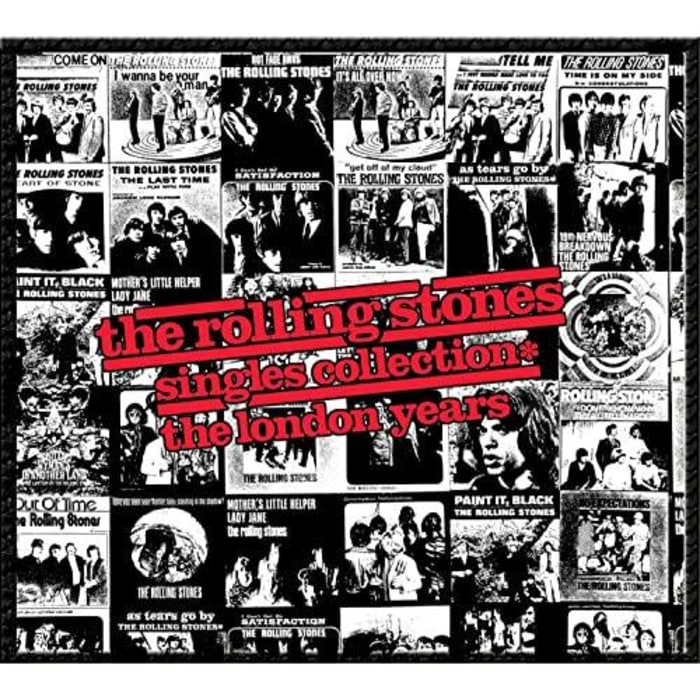
Written by Jerry Ragovoy (under the pseudonym Norman Meade), this song was first recorded in 1963 by jazz trombonist Kai Winding, who took the verses (those lyrics were added later) while the knockout backup trio of Cissy Houston, Dionne Warwick and Dee Dee Warwick sang the chorus. R&B singer Irma Thomas dropped the first version with full lyrics in August 1964, but that version was quickly overshadowed by the Stones’ cover a month later. The first two versions are terrific, but they don’t have Ian Stewart’s Vox Continental organ drifting under Keith Richards’s opening guitar lick. The just-out-of-tune rhythm guitar is a choice, and a brilliant one at that. This was the Stones’ first top ten hit in the U.S.
9. "Brown Sugar" (1971)

A killer side one/track one that is, unfortunately, a lyrical nightmare. The dean of rock-and-roll criticism, Robert Christgau, says it’s “so compelling that it discourages exegesis.” It’s hard to shrug off the first verse as mere nonsense, which is basically a “Mandingo”-like fantasy of a slaver having his way with chattel. As a song about interracial sex, it’s awfully primitive. But rock-and-roll is primitive, and Little Richard covered the song, so what are you gonna do?
8. "Shine a Light" (1972)

The penultimate track on “Exile on Main Street” opens with a brief eulogy for Brian Jones (“Saw you stretched out in room ten-oh-nine/With a smile on your face and a tear right in your eye”), and turns into a gospel-tinged farewell to a tortured friend. Jagger mostly collaborated with Leon Russell on the writing (and his influence is massively apparent), but the credit is still split with Richards. It was written for Jones while he was still alive, but completed after he was gone. This is the Stones’ brand of sentiment. No dwelling allowed.
7. "Jumpin' Jack Flash" (1968)

Though it just missed hitting the top of the Billboard Hot 100 upon initial release, if you ask a rando to name a Rolling Stones song that isn’t “Satisfaction”, they’ll probably say “Jumpin’ Jack Flash”. It’s an older song in their discography than many people realize; the band recorded it in 1968 as a back-to-basics rocker in response to their fan base’s displeasure with the ’67 LP, “Their Satanic Majesties Request”. It’s the “Mama Said Knock You Out” of its day. Don’t call it a comeback. We can do this whenever we please. This kicked off the Stones’ epic album run of “Beggars Banquet”, “Let It Bleed”, “Sticky Fingers” and “Exile on Main St.”.
6. "Can't You Hear Me Knocking" (1971)

That opening riff! According to Keith, like so much inspiration, it just “came out flying.” “I just found the tuning and the riff and started to swing it and Charlie picked up on it just like that, and we're thinking, hey, this is some groove.” The song’s middle section picks up with congas from Rocky Dijon and additional percussion courtesy of Jimmy Miller, but the real muscle comes from Billy Preston on the organ and Bobby Keys tearing it up on the saxophone. What a knockout of a cut.
5. "Paint It Black" (1966)
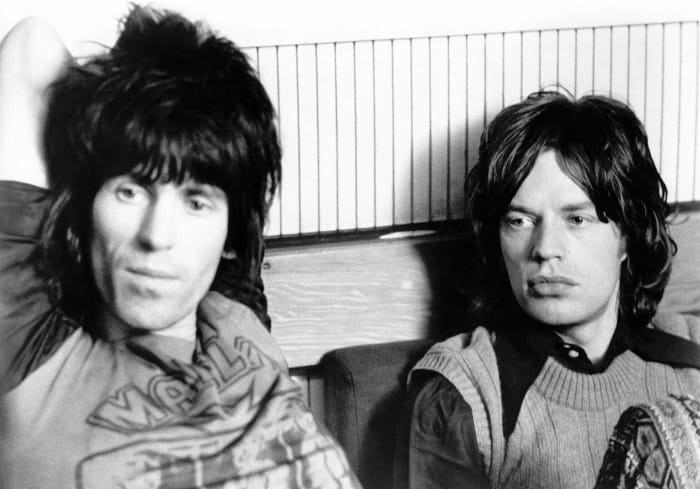
This classic is every bit as dark and despondent as the title indicates. The lyrics describe a funeral procession for someone close to Jagger (“I see a line of cars and they’re all painted black/With flowers and my love, both never to come back”), but there appears to be no specific, real-life inspiration for the song – which is amazing because it’s hard to think of a song more direct and shattering in expressing grief. Brian Jones’s sitar opening is every bit as iconic as anything George Harrison did with the instrument.
4. "Doo Doo Doo Doo Doo (Hearbreaker)" (1973)
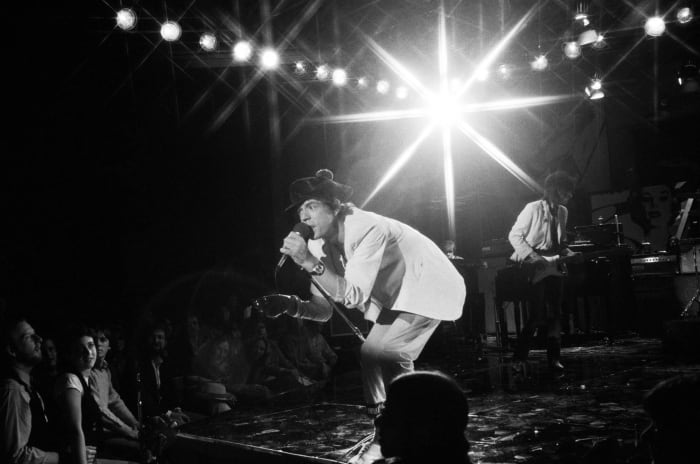
I understand “Goats Head Soup” isn’t “Exile on Main St.”, but any album that contains “Angie”, “Starf***er”, “Coming Down Again” and this all-timer deserves a little more love than it typically receives. Billy Preston rips this sucker open with a clavinet riff that means business, and Jagger roars with socially conscious outrage about the NYPD murdering a young man. “Heartbreakers/With your .44/I want to tear your world apart.” That’s the good stuff, Mick. Whether in response to the (then) recently released “Dirty Harry” or urban police brutality in general, this is a track that is crazy relevant today. I love this song.
3. "Sympathy for the Devil" (1968)

The greatest side one/track one of all time. The title provoked charges of Satanism, and Jagger’s first-person performance as Mephistopheles encouraged these surface readings, but it’s pure mischief. It’s not a terribly deep song, nor is it meant to be. Jagger’s point is that humanity has reliably done the devil’s work throughout the millennia, and, well, look at where we are in 2020. The song lost its power to shock long ago, but imagine throwing on “Beggars Banquet” in 1968 and hearing this a month after Nixon was elected president. This track changed lives.
2. "(I Can't Get No) Satisfaction" (1965)
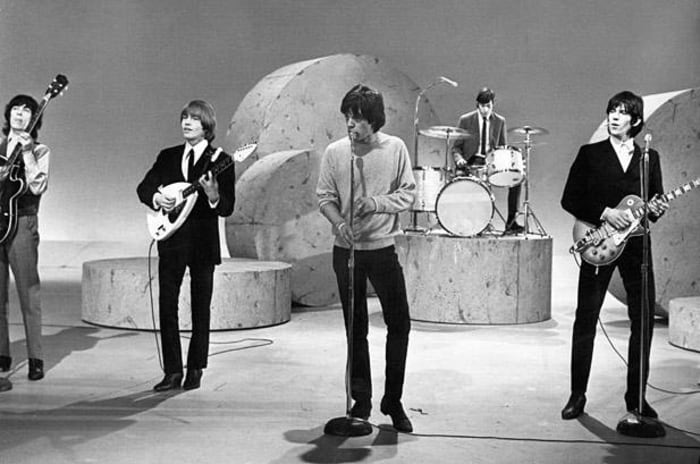
According to Rolling Stone, this is the second greatest rock song of all time (behind Bob Dylan’s “Like a Rolling Stone”, which is so effing twee). It verily bursts with the randy, rebellious spirit of rock-and-roll. The lyrics are nasty (everyone and their disapproving father knew what “And I’m trying to make some girl” meant), Keith’s hook is down-and-dirty and the Jagger swagger established the Stones as the bad-boy British Invasion alternative to The Beatles (girls wanted to date John, Paul or George; they wanted to “make” Mick, Keith and Brian – no “or” about it). There are some superb covers out there from Otis Redding, The Residents and, the best of all, Devo, but there’s no topping the original.
1. "Gimme Shelter" (1968)
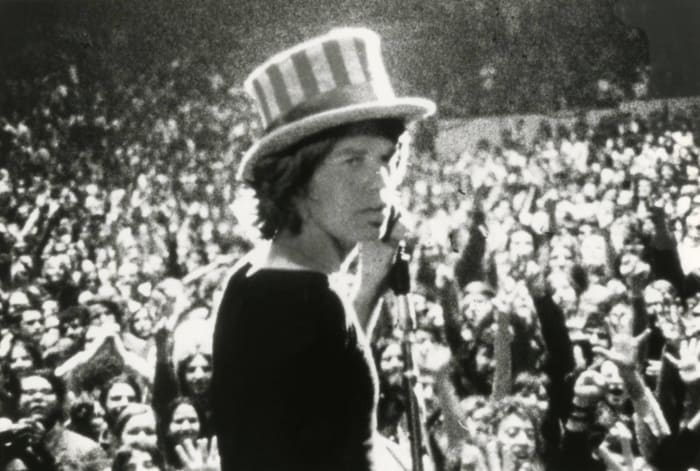
What if I told you Chris Columbus beat Martin Scorsese to “Gimme Shelter” by three years? I mention this because Scorsese has used the leadoff track to “Let It Bleed” in three movies, but the ultra-commercial director who’d give us “Home Alone” first used the LP recording in “Adventures in Babysitting”. This is a classic “build” song that gradually introduces its sonic components before bringing them together in fiery harmony. You may have heard it more than enough for one lifetime, but it'lll always be there for a new, adventurous generation to discover - and that is a very comforting thought indeed.
Jeremy Smith is a freelance entertainment writer and the author of "George Clooney: Anatomy of an Actor". His second book, "When It Was Cool", is due out in 2021.
More must-reads:
Trending in Entertainment
Customize Your Newsletter
 +
+
Get the latest news and rumors, customized to your favorite sports and teams. Emailed daily. Always free!
Use of this website (including any and all parts and
components) constitutes your acceptance of these
Terms of Service and Privacy Policy.

